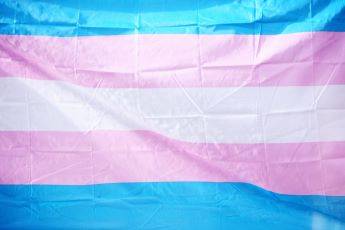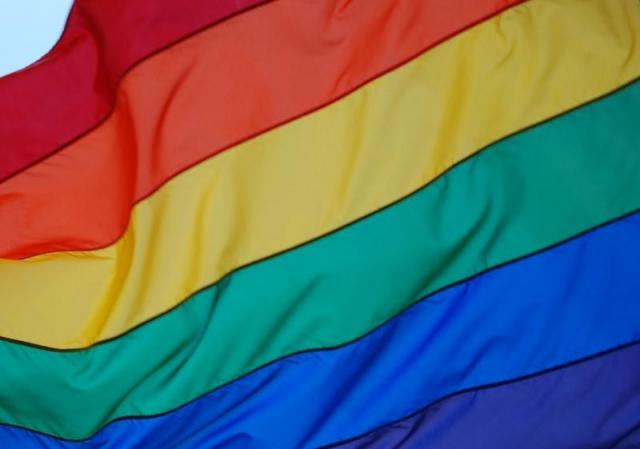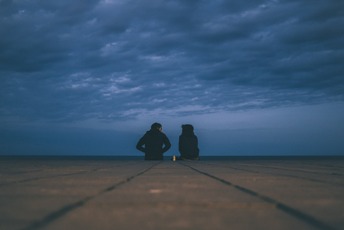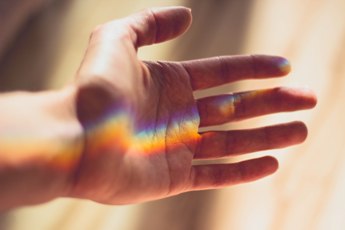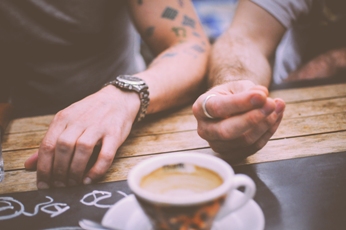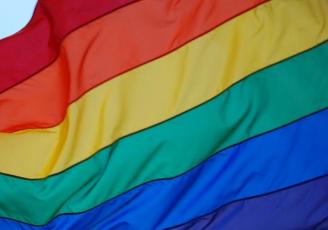New research and reports about violence affecting LGBTTQIA+ people
Tue 26 Jan 2021
New reports from Aotearoa New Zealand and Australia highlight experiences of violence including family and sexual violence among LGBTTQIA+ people (Lesbian, Gay, Bisexual, Transgender, Takatāpui, Queer, Intersex, Asexual).

Aotearoa New Zealand research
The Ministry of Justice has recently published an infographic Experience of crime by sexual orientation highlighting statistics about lesbian, gay and bisexual (LGB) people's experiences of crime. The data, which are drawn from the Ministry’s annual New Zealand Crime and Victims Survey (NZCVS), show that LGB adults are more than twice as likely to experience intimate partner violence (IPV) and/or sexual violence (68% of bisexual adults and 57% of lesbian or gay adults have experienced IPV and/or sexual violence) compared to the NZ average (29%) based on the NZCVS. For more information see the Ministry of Justice news story and media release.
Te Whāriki Takapou, in collaboration with Te Kotahi Research Institute and the University of Waikato, launched research findings from the Honour Project Aotearoa in November 2020. The project investigated Kaupapa Māori strengths-based understandings of health and wellbeing in relation to takatāpui/Māori LGBTQI+ communities. The research did not specifically ask questions about family or sexual violence but did ask about general experiences of violence. The research found that 49% of people surveyed reported they had ever experienced violence or the threat of violence because they are takatāpui and Māori LGBTQI+. Of those, the most common forms of violence were physical, sexual, psychological and emotional abuse. The research also explored concepts of health and wellbeing. Participants rated whanaungatanga or relationships, having a home to live in, feeling connected, and having a strong sense of their identity (cultural, sexual and gender identities) as most important for their health.
Previous Aotearoa New Zealand research and reports about experiences of violence in the Rainbow community and providing support include:
Counting ourselves: The health and wellbeing of trans and non-binary people in Aotearoa New Zealand (2019)
Supporting Aotearoa’s rainbow people: A practical guide for mental health professionals (2019)
Reports and fact sheets from the Hohou Te Rongo Kahukura - Outing Violence project (2016-2017)
Growing up takatāpui: Whānau journeys (2017) and Takatāpui: Part of the whānau (2015)
Doing our best for LGBTIQ survivors (2016)
You, me / us from the It's Not Ok Campaign (2015)
For more information see our related stories below and the NZ Human Rights Commission report PRISM: Human Rights issues relating to Sexual Orientation, Gender Identity and Expression, and Sex Characteristics (SOGIESC) in Aotearoa New Zealand - A report with recommendations (2020).
Australian research and reports
Researchers from the Australian Research Centre in Sex, Health and Society at La Trobe University in Australia asked more than 6800 LGBTIQ adults aged 18 and over about their relationships, families and more. The researchers included specific questions about IPV and sexual violence. The Private lives 3: the health and wellbeing of LGBTIQ people in Australia, published in November 2020, summarised findings from the research. When participants were asked about general experiences of abuse, 41.7% reported ever being in an intimate relationship where they felt abused in some way by their partner and 38.5% reported ever feeling abused by a family member. When asked about experiences of specific forms of violence and abuse, participants reported higher rates: 60.7% reported ever experiencing at least one form of IPV and 64.9% reported ever experiencing at least one form of family violence. In addition, 48.6% of participants reported ever being forced or coerced into sexual acts.
The researchers highlighted:
"It is notable that the proportions of participants who reported having ever experienced intimate partner or family violence were higher than in previous studies. This is likely due to PL3 having provided a comprehensive list of different forms of violence as response items. These items were developed to measure a more diverse range of forms of violence and utilise more inclusive definitions of family and partners that better reflect the diverse communities of PL3 than other surveys in Australia. This approach may have gone some way towards helping to address previous literature that has observed differing levels of self-identified intimate partner violence and subsequent under-reporting."
Only 28% of participants from the Private Lives 3 survey who reported having ever experienced family or intimate partner violence said they reported the incident to a professional service at the most recent time the incident occurred. Participants were most likely to report the incident to a counselling service or psychologist (18.7%) with only 5.9% reporting the incident to police, and only 45% of those feeling supported.
Equality Australia and the Centre for Family Research and Evaluation surveyed more than 2,600 LGBTIQ+ people in Australia about their experiences of domestic and family violence in the previous 12 months. The research report, There’s no safe place at home was published in December 2020 and summarises findings from the research. The researchers found that 12.2% of LGBTIQ+ respondents were at risk of domestic and family violence based on their experiences in the last 12 months. The research also found that specific groups within the LGBTIQ+ community reported a higher risk of experiencing domestic or family violence including people under the age of 25, trans and gender diverse people, and people with disabilities and chronic health conditions.
The 2017 Victorian Population Health Survey also asked LGBTIQ+ people about experiences of family violence in the previous two years. See the report The health and wellbeing of the lesbian, gay, bisexual, transgender, intersex and queer population in Victoria: Findings from the Victorian Population Health Survey 2017, published in September 2020.
Rainbow Health Victoria published the Pride in Prevention: A guide to primary prevention of family violence experienced by LGBTIQ communities in June 2020. The guide provides an overview of the drivers of violence, looks at frameworks for change and outlines initial priorities for intervention.
Other international research
The journal article The Dark Side of the Rainbow: Queer Women's Experiences of Intimate Partner Violence (2020) summarises findings from a review of qualitative articles that looked at IPV in female same-gender relationships. The researchers looked at barriers to help and support, themes within experience of IPV and recommendations for helping professionals.
Related news
The United Nations Human Rights Office of the High Commissioner launched a free online course on the Human Rights of LGBTI People (2020). It is an introductory course designed for UN staff, State officials, civil society organizations, national human rights institutions and other stakeholders. It covers key terms and concepts related to LGBTI people, harmful myths and stereotypes, human rights violations faced by LGBTI people, the role of the UN and steps that UN officials and others can take to tackle violence and discrimination against LGBTI people.
Related media
Conversion therapy ban petition: Takatāpui 'inherent to our culture', RNZ, 08.03.2021
Queer ethnic youth facing harassment and rejection from community – report, Stuff, 02.03.2021
Survey reveals higher risk of sexual violence for gay, lesbian or bisexual people, RNZ, 15.01.2021
Report trans discrimination, Human Rights Commission urges, RNZ, 17.11.2020 (part of the RNZ Here We Are series about trans mental health)
Mātauranga Māori needed to counter takatāpui discrimination, Waatea News, 17.11.2020
Image: Gerd Altmann from Pixabay



